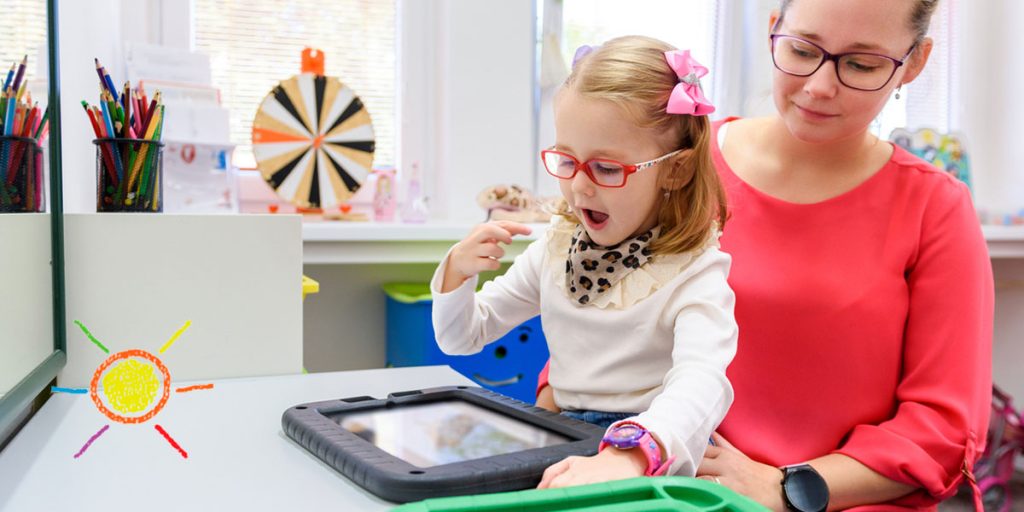Play therapy can be incredibly beneficial for children diagnosed with autism, and it could help them reduce anxiety. Play therapy works to improve a child’s confidence, emotional intelligence, communication and social skills. Through self-paced play and guiding support, kids can increase their independence, learn problem-solving skills and develop a sense of emotional well-being.
What Is Play Therapy for Children?
Play is an important part of child development because it affects all of the brain’s functions and areas. The purpose of play therapy is to help children engage in play in a way that supports their developmental levels and abilities.
During play therapy, children can explore activities that interest them while an adult guides, recognizes and supports various social and emotional skills. Engaging in activities they enjoy helps children express themselves in ways that feel most comfortable for them, and it helps them develop skills that can reduce anxiety.
6 Benefits of Play Therapy for Kids Diagnosed With Autism
Play therapy can benefit all children, but it is especially helpful for kids with an autism diagnosis. It can help a child develop the skills and confidence to thrive socially, emotionally and mentally in various situations. Play therapy offers the following benefits for children diagnosed with autism:
1. Self-Paced Learning
Play therapy gives children control over their learning. A child can learn at their own pace when they engage in play therapy. They can make decisions and choose the activities they want to engage in, discovering what interests them the most. A play therapist avoids instructing a child during play therapy, letting the child take the lead and set the pace. This process builds a strong relationship between the therapist and the child and develops a strong foundation for the child to grow.
2. Emotional Growth
Children can explore and learn how to express their emotions through play therapy. A child can gradually learn how to control their actions and make decisions through play, developing healthy coping skills. Taking part in activities that interest them helps children feel comfortable enough to communicate their needs and emotions in healthy ways.
3. Positive Self Expression
Through play therapy, children can transition from harmful self-expressive behaviors to positive ones. A child’s play therapy experiences can teach them how to use non-injurious activities or toys to express their feelings and needs.
4. Improved Social Skills
Play therapy allows children to engage in social interaction and try different interaction styles. Giving children the time they need to try various interaction styles can help them discover the best one for their comfort levels. It also helps them learn how to engage with others in positive ways. As a child participates in play therapy, they can learn how to:
- Understand social cues.
- Share toys with others.
- Wait for turns.
- Participate in social interactions appropriately.
5. Independence
While play therapy can help children diagnosed with autism develop social skills and learn how to interact with others, it also fosters independence. As they engage in play therapy at their own pace, children can develop the self-confidence to make decisions for themselves.
6. Versatility
Play therapy is versatile enough to benefit children in professional therapy settings and at home. A play therapist can work with a child in a professional setting and teach parents how to incorporate play therapy into their home routines. The versatility of play therapy enables parents to strengthen relationships with their children and help them grow in all areas of their lives.
How Does Play Therapy Help Children Diagnosed With Autism Reduce Anxiety?
Since play therapy increases social and emotional skills, it can significantly reduce anxiety. The self-paced nature of play therapy allows children to develop a sense of safety in the following areas:
- Trust: Kids develop trust when adults create a safe play and learning environment. Play therapy lets them explore the activities they feel most comfortable with, helping them develop a sense of security and safety.
- Control: When kids have opportunities to make decisions, they feel they have more control in various situations. They also develop self-control, helping them manage their feelings and actions to reduce anxiety.
- Confidence: Children also develop the confidence necessary to interact with others when they engage in play therapy.
- Coping skills: With improved coping skills, children learn how to manage anxious feelings in healthy ways. While anxiety can still occur, play therapy can help children work through it easier than they would otherwise.
- Feelings of emotional well-being: A child’s brain releases oxytocin while they play, and this hormone boosts their sense of emotional well-being.
Common Play Therapy Techniques and Principles
The following therapeutic approaches help therapists and parents incorporate play into therapy and home settings:
- DIR: DIR stands for developmental levels, individual differences and relationships. These three concepts are the core of play therapy, and they represent how important it is to respect and validate a child’s specific needs.
- Floortime approach: Floortime is the work therapists or parents do on the floor with a child. It involves joining a child at their level and engaging with them in the activities that spark their interest. The Floortime approach uses a child’s specific interests to help them build relationships, develop social skills and improve communication.
- The PLAY Project: The Play and Learning for Autistic Youngsters (PLAY) Project is a therapeutic format based on DIR and Floortime that parents can use at home. This approach teaches parents how to incorporate play therapy into home playtimes and daily routines. Therapists work with parents, teach them how to use play therapy and provide constructive feedback.
Play therapy follows a child’s lead but enables adults to demonstrate social and emotional skills for the child to follow. For example, a child may start playing with a kitchen set and provide an opportunity for their therapist or parent to demonstrate taking turns with the toy food items. The adult may take an item from the kitchen set’s fridge, place it on a plate and then prompt the child to take their turn and do the same.
Effective play therapy is based on specific principles therapists and parents should follow to help a child feel safe. When adults adhere to the appropriate play therapy principles, they do the following:
- Form a warm, positive connection with the child
- Accept the child
- Create an environment that fosters a sense of freedom or permissiveness
- Recognize and reflect the child’s expressed feelings
- Recognize when a child solves their own challenges and respect their ability to do so
- Use a non-directive approach that lets the child lead
- Practice patience and recognize the gradual process of play therapy
- Establish limitations that anchor the play therapy in reality
Explore Play Therapy for Your Child
Play therapy can help your child develop the self-confidence, emotional intelligence and social skills to grow and develop in various areas of their life. MySpot Care incorporates play in our Applied Behavior Analysis (ABA) therapy. This play-based, individualized approach can help your child thrive in school and at home. Our board-certified and licensed behavior analysts are dedicated to offering compassionate and effective treatment. Contact us to learn more or submit an intake form to get started.


